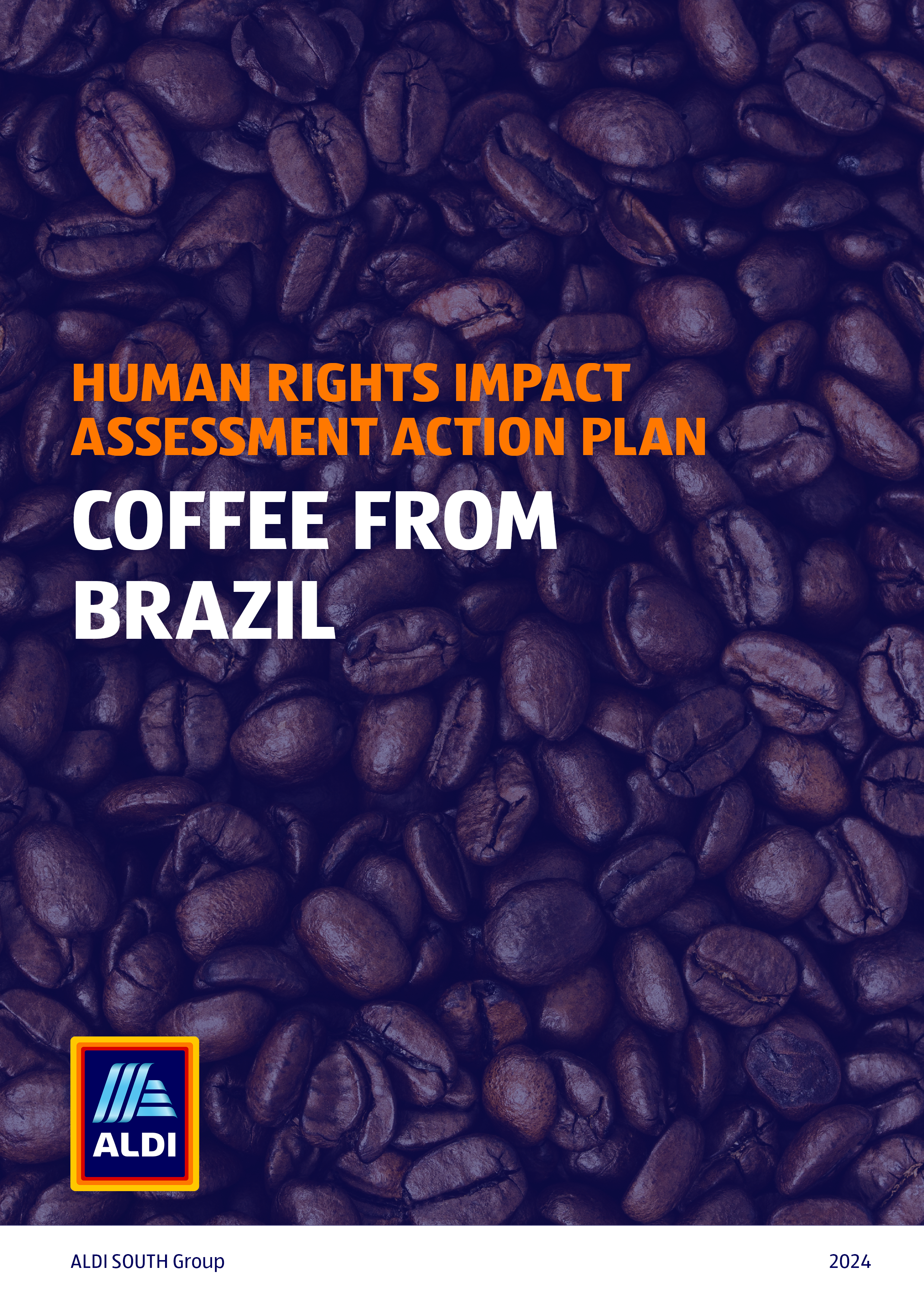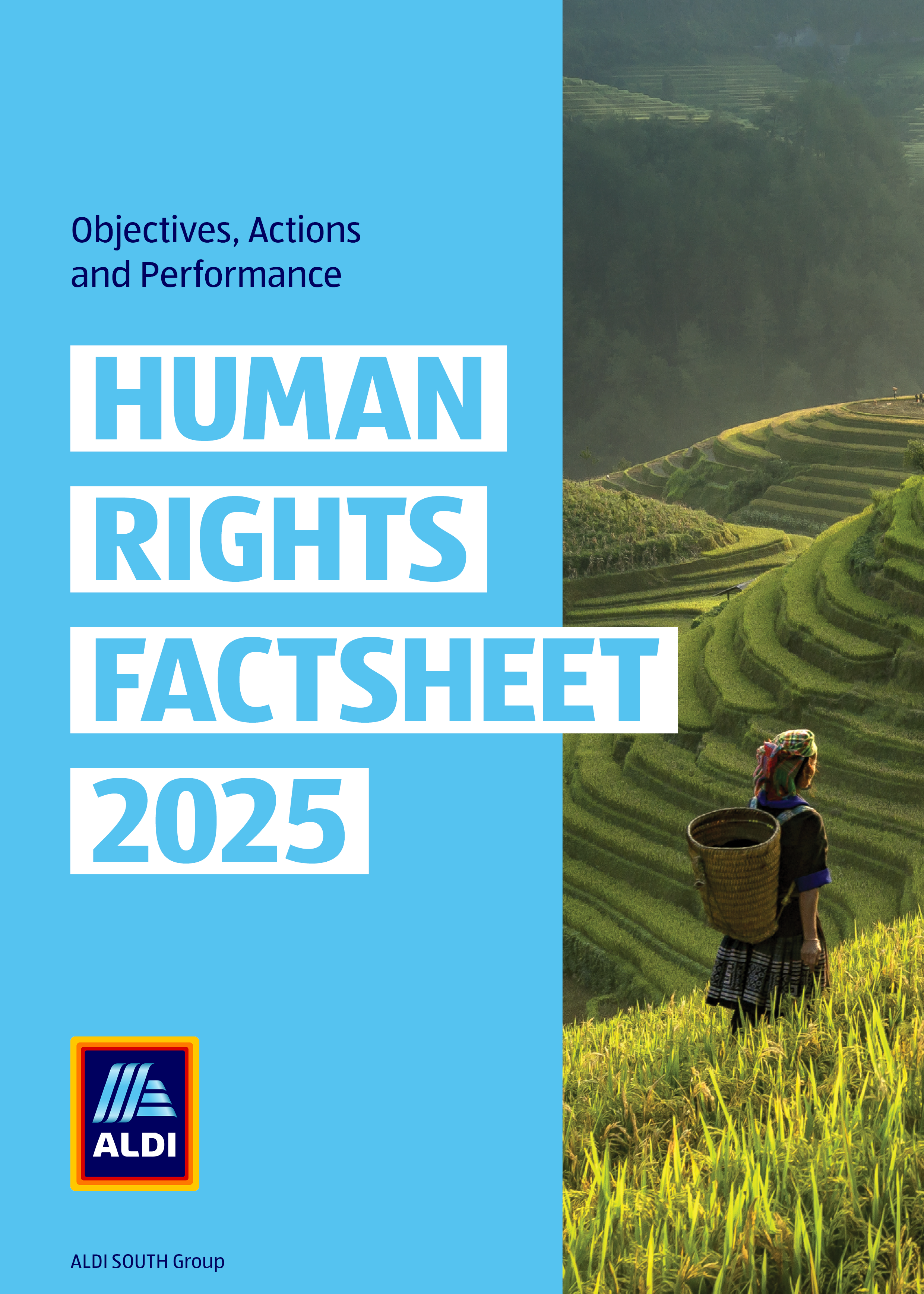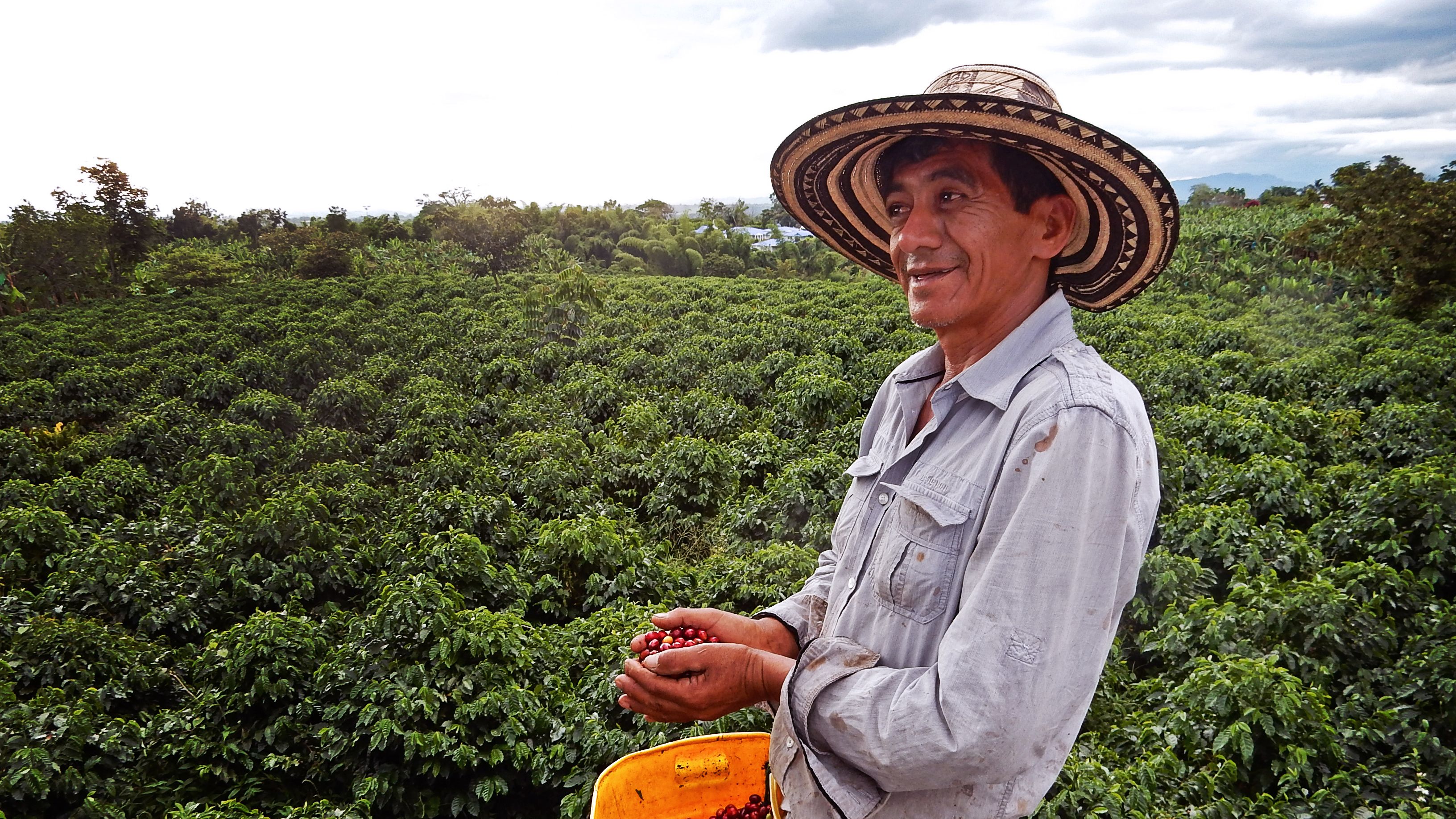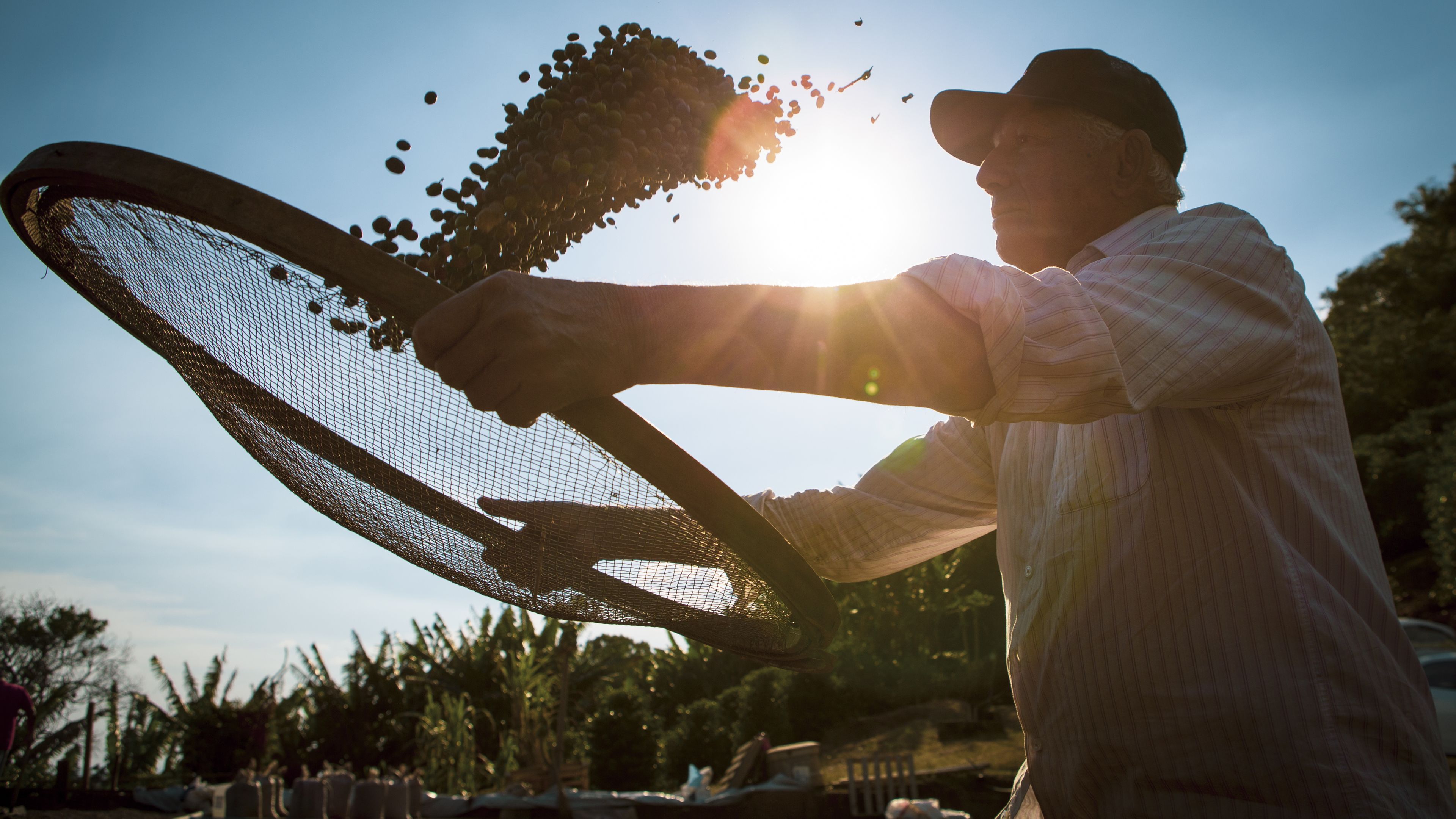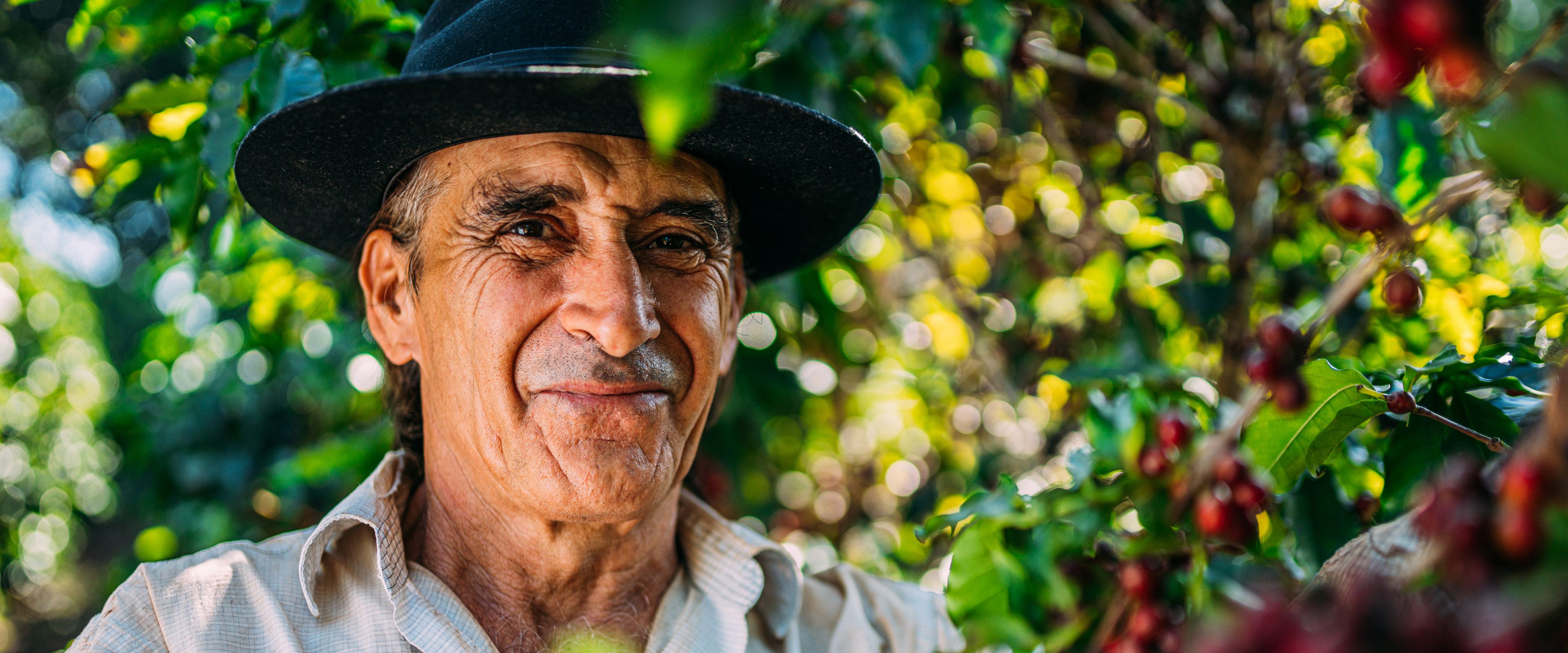

In order to act responsibly and sustainably, we need to understand the full scope and impact of our company activities and business relationships. In 2020, we conducted a human rights impacts assessment (HRIA) on Coffee from Brazil. It highlighted critical human rights issues and provided insights into the organisation and structures of the coffee-producing sector in Brazil.
ALDI has committed to carry out detailed human rights impact assessments (HRIAs) in selected high-priority food and non-food supply chains. These studies follow a stringent methodological approach, including extensive background research and engagement with rightsholders. They help us to identify, understand and assess the potential and actual adverse impacts of our business activities on workers and other affected rightsholders, such as community members, smallholder farmers and women. Coffee is one of ALDI’s high-priority raw materials in terms of profile and volume bought, with a high risk of adverse impacts on human rights.

The main challenges of sourcing coffee sustainably
Coffee is primarily cultivated by smallholder farmers in sub-tropical regions. Many farmers in coffee-producing countries face significant social, economic, and environmental challenges. They deal with human rights violations like child and forced labour, gender discrimination and poverty. Price fluctuations, deforestation and the effects of climate change affect farmers, workers and their communities.
Find out more about our goals and actions to increase sustainability in producing and sourcing coffee.
Why Brazil as focus country for the HRIA?
Producing around one-third of the world’s coffee, Brazil holds the paramount position within the global coffee market. As a result, this sector is highly important to the country’s rural economy – sustaining livelihoods for millions of people. According to official statistics, more than 8.4 million workers are engaged in the Brazilian coffee sector directly and indirectly. It is also one of the top three countries of origin for ALDI coffee suppliers.
Another reason Brazil was selected is due to the diversity of its production base – including large plantations and a significant smallholder sector. This allowed for a broad selection of rightsholders to be included in the assessment.
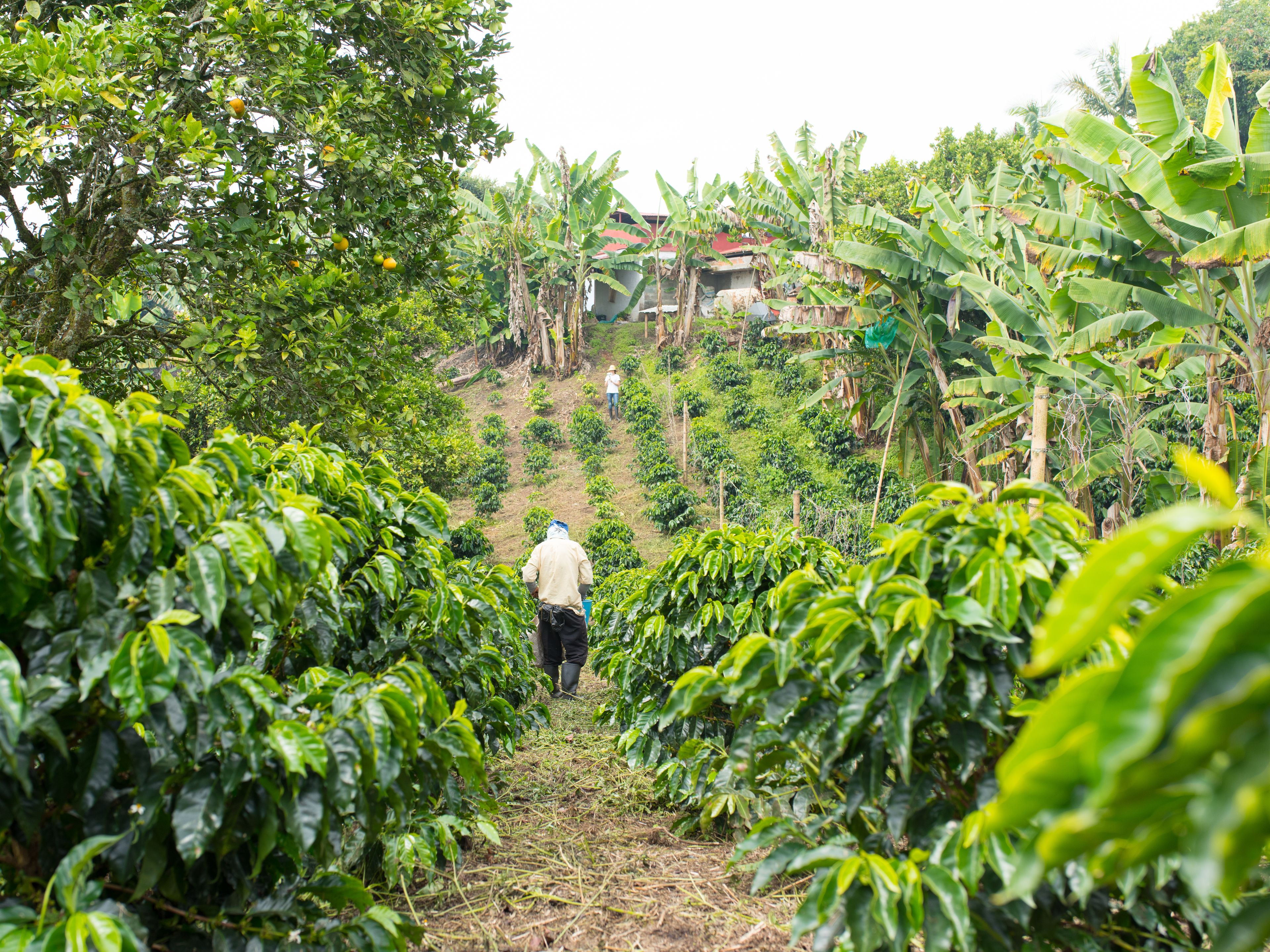
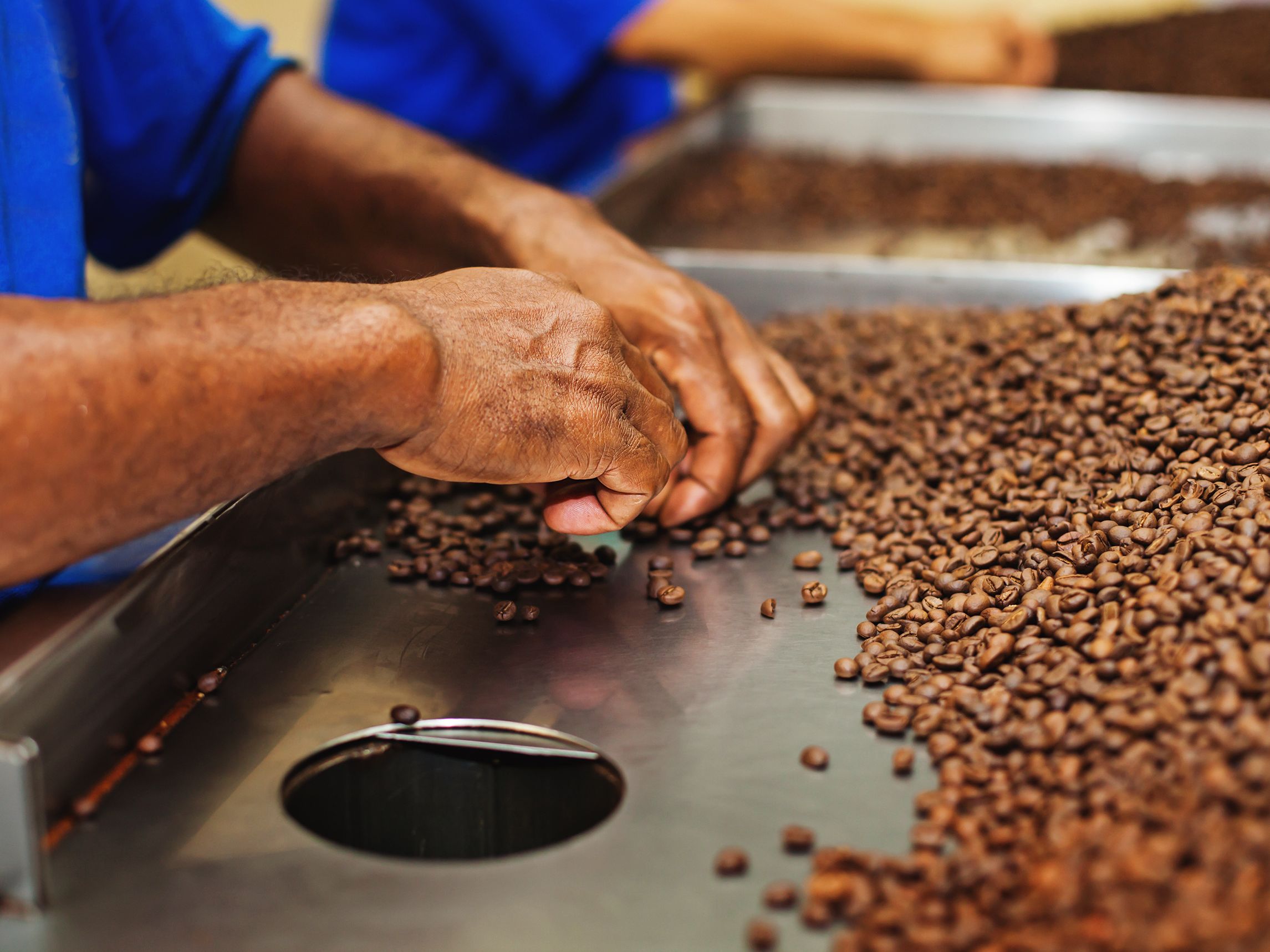
Key Finding for us as a retail company
Through this project, we gained in-depth knowledge of the coffee supply chain. We identified impacts potentially linked to ALDI’s business activities and where ALDI can initiate change. The HRIA has been valuable not only to shed light on the supply chain but also to offer market and business perspectives on human rights in the coffee sector. Its findings help to strengthen ALDI standards and due diligence.
- Price volatility, environmental challenges, labour shortages and informality are the biggest challenges in coffee production.
- Women and smallholders were identified as most vulnerable to negative impacts.
- The most negative impacts are felt at the level of crop development, farm maintenance and harvesting operations.
- Many impacts have more than one root cause. There are sectoral and commercial drivers, government and regulatory framework drivers, and contextual drivers (such as climate change, lack of childcare facilities and education etc.).
- ALDI has no direct contractual or investment relationships to lower supply chain activities where the most salient human rights impacts have been identified. However, key areas in which we can make a difference are supplier selection, purchasing practices and pricing.
Deep dive: Methodology and impact assessment
To conduct this study, a strict HRIA methodology has been followed. That included desktop analysis, remote stakeholder engagement, an impact assessment and developing recommendations to mitigate, prevent and remedy identified impacts.
The assessment considered the different perspectives of people affected by activities within ALDI’s coffee supply chain. We assessed potentially impacted rightsholders and key supply chain stakeholders – such as coffee processing factories, international traders, direct suppliers, and key ALDI employees. The process also engaged stakeholders beyond ALDI’s immediate supply chain, including trade unions, government, civil society organisations, and NGOs. Read the complete assessment for more detailed information.
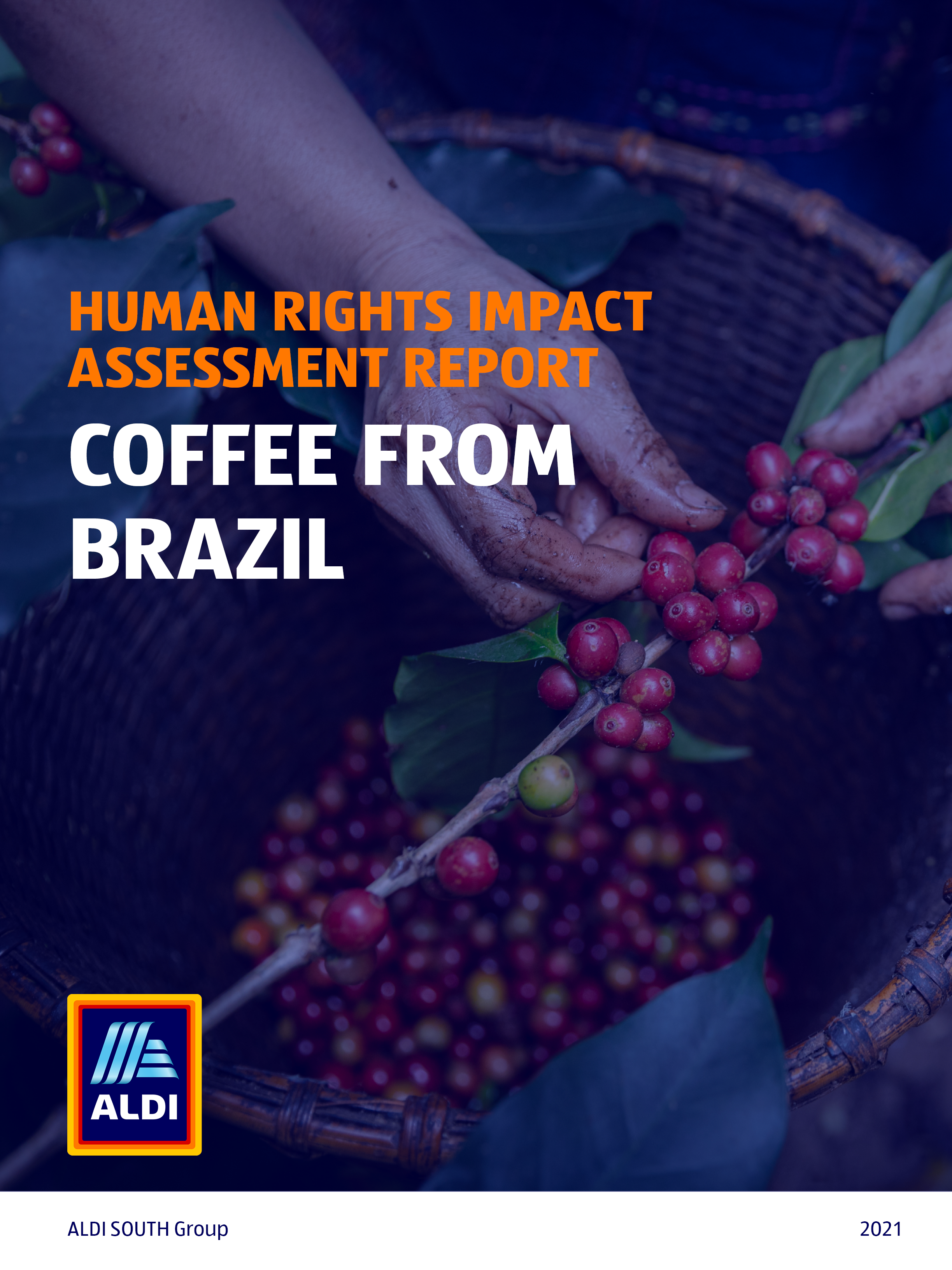
Risks and impacts on smallholders
In this HRIA, “Smallholders” are defined as a grower with less than 10 hectares. They often produce within their families, relying on manual labour or small hand-held machines for harvesting. While the smallholder coffee sector in Brazil is reported to be profitable and professionalised, this is not the case for other crops or coffee production in other countries. Nevertheless, many Brazilian smallholders struggle to make a decent standard of living for themselves and their families. Low global coffee prices, as well as fluctuations in supply and demand, affect their incomes.
Climate change is increasingly impacting coffee production: Weather extremes like droughts and frosts make growing conditions more challenging and unpredictable. Additionally, more and more diseases affect fields and facilitate the necessity for agrochemicals. These smallholder-specific issues are taken into consideration by certification standards, which ALDI actively engages with, and also aims to increase share of certified volumes in our supply chains. Both points were embedded in ALDI’s Human Rights Action Plan.
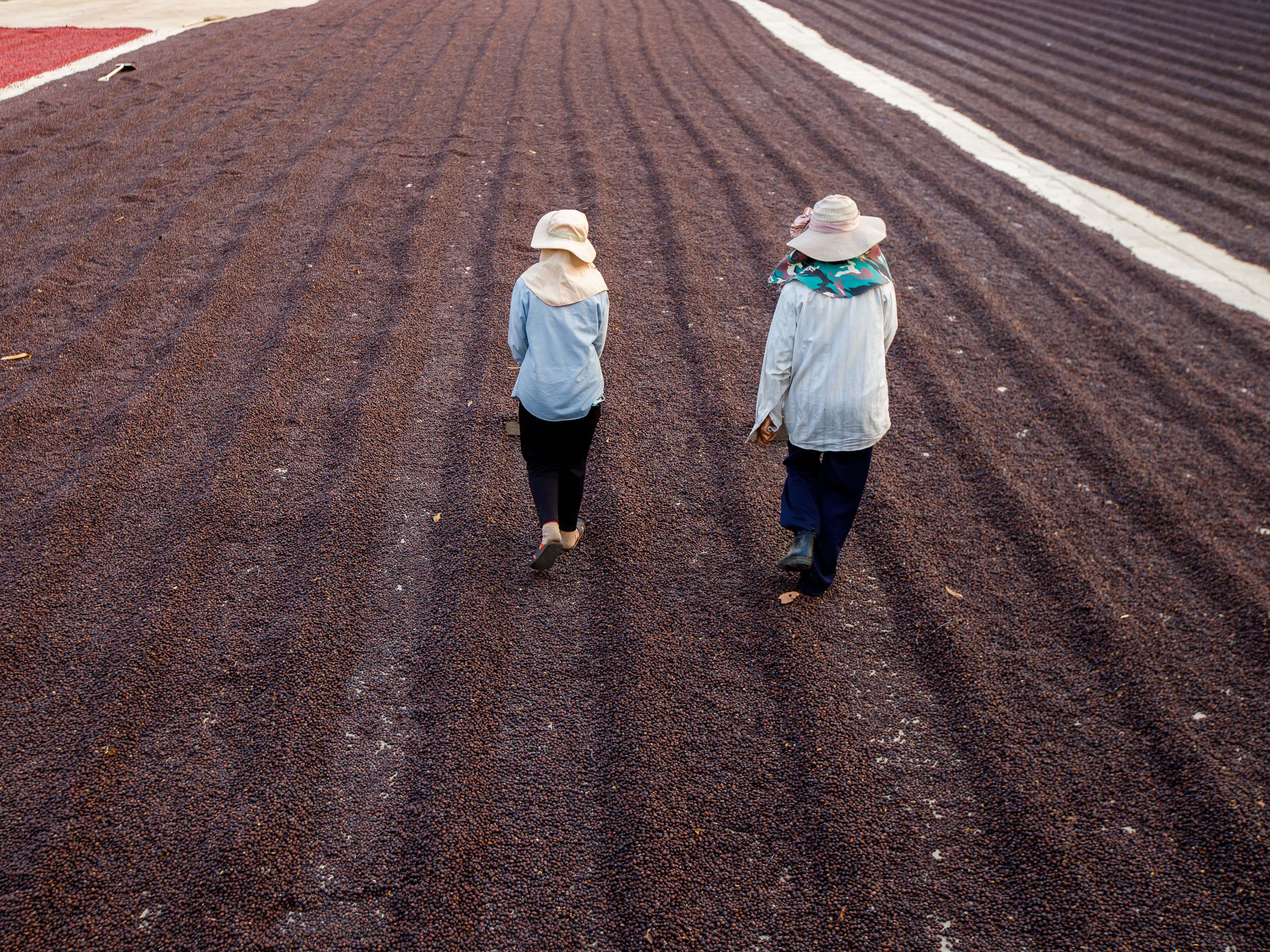
Gender issues in the Brazilian coffee supply chain
Traditionally, the coffee sector in Brazil has been male-dominated. That is slowly changing, with women increasingly taking up roles in production and across the sector – in administration, quality assessment, marketing and communications. However, women remain the minority – especially in leadership positions. Just 13% of coffee farms are owned by women. An Oxfam study from 2021 found widespread gender inequality in coffee production in Brazil.
For more clarity, women were scoped in as rightsholders at the outset of the HRIA process. Early desktop research identified evidence of differentiated rights impacts on women in the sector. Interviews and surveys were part of our stakeholder engagement and provided a deeper understanding of specific challenges. These results were embedded in ALDI’s Human Rights Action Plan.
Our actions to drive change
Based on the recommendations of this study, ALDI has developed a coffee supply chain-specific Human Rights Action Plan. It focuses on areas where we have potential leverage to address negative and enhance positive impacts for rightsholders. These are mainly within supplier selection and requirements, purchasing practices and pricing.
- Continuing and intensifying stakeholder engagement: The HRIA key findings and Action Plan were translated to Portuguese and shared with involved stakeholders. After reviewing the results collaboratively, the action plan was refined. Results have been verified in in-person field trips to sourcing regions.
- Strengthening gender equality activities: We published a group-wide international gender policy for supply chains. This policy focuses on expectations regarding gender equality, non-discrimination and gender-based violence and harassment. Along our ALDI supply chains, we want to raise more awareness among suppliers on gender issues.
- Strengthening supplier screening and monitoring: The findings of this HRIA have been taken into consideration for our Sustainability Supplier Evaluation roadmap.
- Enhancing long-term relationships: The findings of this HRIA were included in our sustainable purchasing practices at ALDI.
- Increasing cost transparency: We intensified our engagement with Rainforest Alliance, e.g. for the living income/living wage component and monitoring improvements in farmer incomes. At the same time, we engage in other living wage initiatives within the coffee sector - through suppliers or multi-stakeholder initiatives.
- Scaling up certified coffee: The number of certified coffee products needs to be increased. Therefore, we try to understand the barriers for certified and uncertified producers to access markets. By benchmarking different certification standards, we assess if they fit ALDI’s sourcing requirements and our sustainability vision and values.
For more information, read the full HRIA Report on coffee from Brazil and the updated Human Right Action Plan.
